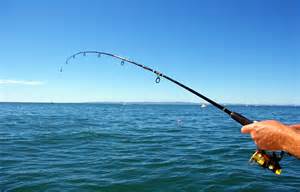The Fisherman Who Got Away
by Rabbi Mordechai Rhine
As we near the conclusion of the Torah-reading cycle, the Torah informs us that the stakes are high. One who is righteous will be rewarded; one who is wicked will be punished. The Torah states this in very clear terms. “See, I am placing before you today a blessing and a curse. The blessing if you obey; the curse if you do not” One wonders: Is there no middle ground? Can’t I just be average?
wicked will be punished. The Torah states this in very clear terms. “See, I am placing before you today a blessing and a curse. The blessing if you obey; the curse if you do not” One wonders: Is there no middle ground? Can’t I just be average?
Indeed, the commentaries tell us that the Torah’s message is that we should not live our lives in neutral. “See!” the Torah demands of us. Pay attention! Live life with focus and with blessing. There is no “middle ground.” Even when you do things that seem “average,” do them with positive intent. When you are shopping, when you are involved in business, even when you drive your car, don’t just do it. Make every effort to do things-even mundane things- in a way that sanctifies G-d’s Name.
In my recent summer travels I had the privilege to meet a gentleman by the name of Gary. My wife and I were walking pleasantly on the dock at a river. Gary was fishing. I don’t know if it was my yarmulkah, or perhaps my tzitzis that he saw, but he made eye contact with me and made small talk about the weather.
As the gentle evening breeze rustled the leaves, we stood absorbing the pleasant scene of the river, the boats, and the people strolling on the dock. I said to him, “You must enjoy fishing.” He said, “Yes, very much.” And as we stood there quietly, he looked up at me and said, “You are probably wondering why I am not catching any fish.”
Before I could say anything, he leaned over to his supply box and showed me a pliers, and the hooks which he had straightened and blunted. He said, “I go fishing to relax. The last thing that I want to do is to catch a fish. Then I would have to clean it and cook it. When I am on vacation I like to eat out. So I straighten the hooks before I set them in the water.”
I smiled and wished him well. But all evening his insightful comment whirled in my head. “He doesn’t go fishing to catch fish. He goes fishing to relax.”
This week’s Torah portion demands that we pay attention as to why we do things. “See!” Pay attention! Do not live life without thinking about what you are doing.
It is a great lesson- a moshol. Let me give you some examples.
We all know why a person has a job: “To make money,” of course. But if the only reason to have a job is to make money, why doesn’t G-d- who is all powerful- just give you the money that you need. And why do people still work even after they have enough money for retirement and beyond?
The commentaries maintain that one of the reasons that G-d created the concept called “work” is to keep us busy and out of trouble. Ask seniors who volunteer. They will tell you. A job is not just to make money. A job is to give a person a sense of purpose. It gives one the opportunity to make a difference.
Consider prayer as another example. We all know why we pray. “To get something.” Yet Jewish literature indicates the opposite. “Why were the Matriarchs barren? Because G-d likes to hear the prayer of righteous people.” The need is not a mistake. The need exists as a catalyst for communication with G-d.
In fact, the Torah doesn’t promise that all our prayers will be answered as we see fit. But it does promise: “G-d is close to all those who call to him sincerely.” As King Shlomo stated, “G-d is your friend, and your father’s friend.” He has a good track record. Prayer isn’t about getting what we want as we see fit. Prayer is about communicating. It is about having a trusted friend with Whom to share life, even in the most difficult of times.
When the Torah states, “See,” it is telling us to pay attention to why we do things. It is an important lesson. Because if you take the time to think about it, the obvious reason isn’t necessarily the real reason that we do things.
Some people don’t go fishing to catch fish. They go fishing to relax.
Some people don’t have a job just to make money. They have a job to be busy and productive.
Some people don’t pray to get things. They pray to come closer to G-d.
Certainly if you do these things you may end up catching fish, making money, or getting what you prayed for. But, as in the case of prayer, travelling life in G-d’s company is itself a worthwhile endeavor.
The Torah tells us that things may not be what they are often understood to be. “See,” and pay attention, “For I place before you today a world of blessing.” See, and make a choice. “You shall choose life.”
With best wishes for a wonderful Shabbos.
© 2016 by TEACH613™


Wonderful! I always thought that vacation should be a preparation for Elul…
-Abba M.